Resources
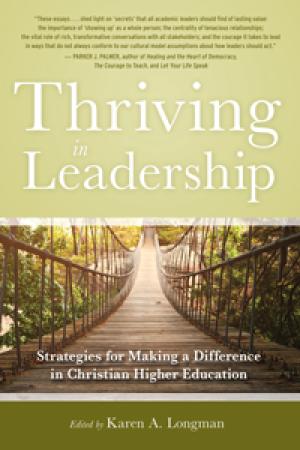
In this book, seventeen senior leaders from faith-based colleges and universities across North America--collectively bringing with them hundreds of years of leadership experience--share fresh insights into the theory and practice of Christian higher education leadership. These authors speak honestly about the successes, failures, and demands that have shaped their current leadership decisions and their visions for the future.In this book, seventeen senior leaders from faith-based colleges and universities across North America--collectively bringing with them hundreds of years of leadership experience--share fresh insights into the theory and practice of Christian higher education leadership. These authors speak honestly about the successes, failures, and demands that have shaped their current leadership decisions and their visions for the future. (From the Publisher)
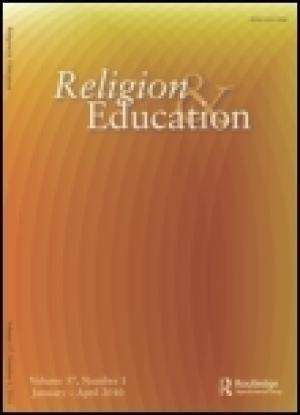
Journal Issue.
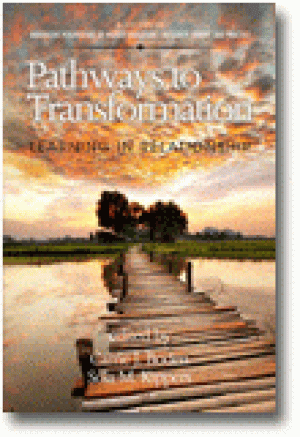
Pathways to Transformation: Learning in Relationship is an edited collection that synthesizes current research on transformative learning and expands the current knowledge-base. This book is timely and significant as it provides a synthesis of some of the most exciting research in two fields: adult education and human services. The objectives of this themed edited collection, Pathways to Transformation: Learning in Relationship, are threefold. First, this collection serves as a space to synthesize current research on transformative learning. Through an extensive literature review, the editors have discerned several important strands of research in the area of transformative learning and solicited chapters dealing with these topics. The second objective of the collection is to expand the current knowledge-base in the area of transformative learning by creating a space for dialog on the subject and bringing together diverse voices. The third objective of the collection is to transcend the field of adult education, with a specific goal to reach an audience in human services (psychology, counseling, social work, marriage and family therapy). (From the Publisher)
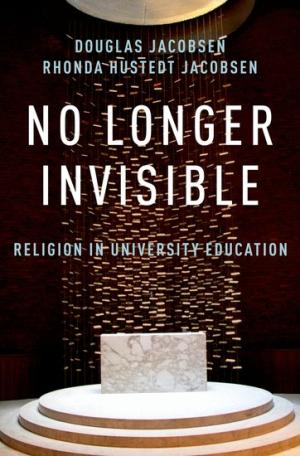
Drawing on conversations with hundreds of professors, co-curricular educators, administrators, and students from institutions spanning the entire spectrum of American colleges and universities, the Jacobsens illustrate how religion is constructively intertwined with the work of higher education in the twenty-first century. No Longer Invisible documents how, after decades when religion was marginalized, colleges and universities are re-engaging matters of faith-an educational development that is both positive and necessary. Religion in contemporary American life is now incredibly complex, with religious pluralism on the rise and the categories of "religious" and "secular" often blending together in a dizzying array of lifestyles and beliefs. Using the categories of historic religion, public religion, and personal religion, No Longer Invisible offers a new framework for understanding this emerging religious terrain, a framework that can help colleges and universities-and the students who attend them-interact with religion more effectively. The stakes are high: Faced with escalating pressures to focus solely on job training, American higher education may find that paying more careful and nuanced attention to religion is a prerequisite for preserving American higher education's longstanding commitment to personal, social, and civic learning. (From the Publisher)
Established in 2000–2001, the Center for Religious and Cross-cultural Studies (CRCS) is the only master's level religious studies program at a non-religiously affiliated university in Indonesia. In many respects, the program is experimental, operating within the dynamic political and religious environment of the Muslim world's youngest and largest democracy. Like other large democracies such as India or the United States, the Indonesian government and courts have their challenges and opportunities in navigating a multiplicity of religions. In Indonesia, this took on particular urgency in the context of religiously-charged conflict in the 1990's and early 2000's which helped lead to the establishment of the CRCS. This paper seeks to explore how students and key faculty relate to the program's mission and approach to the study of religion while tracing the development of religious studies as a discipline in Indonesia. Special attention is paid to the political and, at times, controversial aspects of approaching religion with secular and pluralistic frameworks and language. It was informed by interviews and surveys conducted between January and May of 2010.
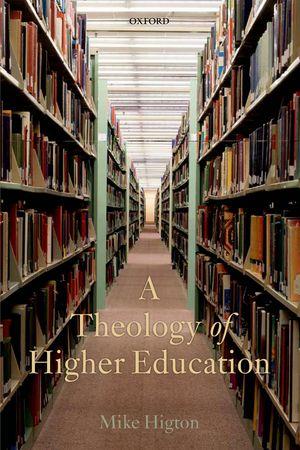
In this book, Mike Higton provides a constructive critique of Higher Education policy and practice in the UK, the US and beyond, from the standpoint of Christian theology. He focuses on the role universities can and should play in forming students and staff in intellectual virtue, in sustaining vibrant communities of inquiry, and in serving the public good. He argues both that modern secular universities can be a proper context for Christians to pursue their calling as disciples to learn and to teach, and that Christians can contribute to the flourishing of such universities as institutions devoted to learning for the common good. In the process he sets out a vision of the good university as secular and religiously plural, as socially inclusive, and as deeply and productively entangled with the surrounding society. Along the way, he engages with a range of historical examples (the medieval University of Paris, the University of Berlin in the nineteenth century, and John Henry Newman's work in Oxford and Dublin) and with a range of contemporary writers on Higher Education from George Marsden to Stanley Hauerwas and from David Ford to Rowan Williams. (From the Publisher)
Tomoko Masuzawa and a number of other contemporary scholars have recently problematized the categories of “religion” and “world religions” and, in some cases, called for its abandonment altogether as a discipline of scholarly study. In this collaborative essay, we respond to this critique by highlighting three attempts to teach world religions without teaching “world religions.” That is, we attempt to promote student engagement with the empirical study of a plurality of religious traditions without engaging in the rhetoric of pluralism or the reification of the category “religion.” The first two essays focus on topical courses taught at the undergraduate level in self-consciously Christian settings: the online course “Women and Religion” at Georgian Court University and the service-learning course “Interreligious Dialogue and Practice” at St. Michael's College, in the University of Toronto. The final essay discusses the integration of texts and traditions from diverse traditions into the graduate theology curriculum more broadly, in this case at Loyola Marymount University. Such confessional settings can, we suggest, offer particularly suitable – if somewhat counter-intuitive – contexts for bringing the otherwise covert agendas of the world religions discourse to light and subjecting them to a searching inquiry in the religion classroom.
One page Teaching Tactic: a free write exercise helps students reflect on and articulate their values.
In this paper, I suggest that community-based learning can act as a “public space” for the exchange of religious and non-religious identities. By providing a space for the collaboration between religiously-affiliated Universities and non-religiously affiliated community partners, community-based learning offers the opportunity for the negotiation of what civic engagement means in a pluralistic society. This exchange can inform the conversation on the public role of religion by offering an example of how religious and secular communities can discover a common language through the realization of shared interests.
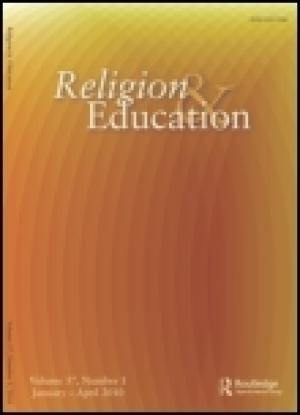
Journal Issue.